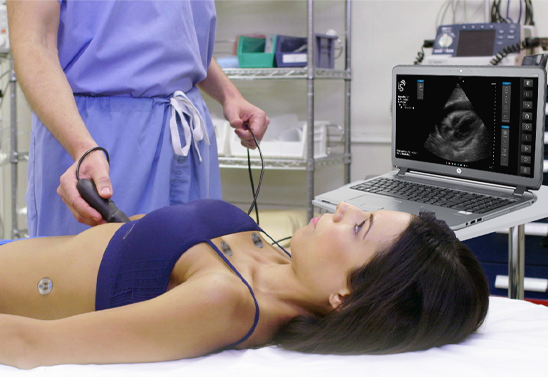Ultrasound technology has become an indispensable tool in the field of healthcare, offering a non-invasive way to visualize and diagnose various medical conditions. For nurses, mastering ultrasound skills has become essential in providing quality patient care. With proper training and practice, nurses can enhance their skills and contribute to more accurate diagnoses and treatment plans.
One of the key benefits of ultrasonography training for nursing is the ability to perform point-of-care ultrasound (POCUS) at the patient's bedside. This enables nurses to quickly assess and monitor patients in real-time, providing valuable information to the healthcare team. Whether it's evaluating the status of a fetus during pregnancy or detecting fluid in the lungs, POCUS can help nurses make timely and informed decisions that can ultimately improve patient outcomes.

Image Source- Google
Training in ultrasound skills typically involves learning how to operate the ultrasound machine, understand different imaging modalities, and interpret ultrasound images. Nurses must also be proficient in positioning patients for optimal imaging and be able to recognize normal anatomy as well as common pathologies. With hands-on practice and guidance from experienced instructors, nurses can develop the confidence and expertise needed to use ultrasound effectively in their practice.
Ultrasound training for nurses often covers a range of clinical applications, including abdominal, obstetric, gynecological, vascular, and cardiac imaging. Each specialty requires specific knowledge and skills, and nurses may choose to focus on one or more areas depending on their interests and practice setting. For example, nurses working in labor and delivery units may benefit from mastering obstetric ultrasound skills to assess fetal development and monitor pregnancy complications.
In addition to clinical applications, mastering ultrasound skills can also improve nurse-patient communication and enhance the overall patient experience. By being able to visually demonstrate and explain findings to patients, nurses can help alleviate anxiety and promote a better understanding of their health condition. This level of patient engagement can lead to increased trust and cooperation, ultimately fostering a more positive healthcare environment.
Furthermore, ultrasound training can open up new opportunities for nurses in various healthcare settings. As the demand for ultrasound services continues to grow, nurses with advanced skills in ultrasound may find themselves in high demand in hospitals, clinics, and imaging centers. Some nurses may even choose to pursue additional certifications or specialty training in ultrasound to further expand their career options.
Continuing education and professional development are essential for nurses looking to master ultrasound skills and stay current with advancements in technology and practice. Attending workshops, conferences, and online courses can provide valuable learning opportunities and networking connections. Nurses can also seek mentorship from experienced ultrasound practitioners to gain insights and guidance on honing their skills.